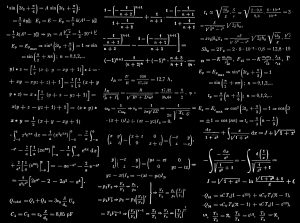Mental Arithmetic: Building a Strong Numerical Foundation with Abacus

Do you want to ensure they have a strong numerical foundation that will serve them well throughout their academic journey and beyond? Look no further than abacus training. Abacus for kids is more than just a tool; it is a comprehensive approach to developing mental arithmetic skills and enhancing cognitive abilities. In this article, we will explore the benefits of abacus training, effective learning techniques, and how it can make your child smart in math.
Benefits of Abacus Training
-
Enhanced Mental Calculation: Abacus training enables children to visualize an abacus in their minds, allowing them to perform complex arithmetic operations quickly and accurately. By visualizing the beads and their movements, children develop a “mental abacus” that helps them perform calculations without relying on physical tools. This ability to mentally manipulate numbers is a valuable skill that contributes to their overall mathematical proficiency.
-
Cognitive Skill Development: Research indicates that abacus training leads to significant improvements in cognitive skills such as memory, concentration, and problem-solving abilities. Children who undergo abacus training show enhanced numerical processing efficiency and better application of mathematical skills in real-life scenarios. The cognitive benefits gained through abacus training extend beyond mathematics and have a positive impact on overall academic performance.
-
Whole-Brain Development: Using the abacus engages both hemispheres of the brain. The left hemisphere, responsible for logical and sequential thinking, works alongside the right hemisphere, which handles creativity and intuition. This dual engagement promotes overall brain development and strengthens cognitive functions. By stimulating both sides of the brain, abacus training enhances children’s learning abilities and boosts their intellectual capabilities.
-
Improved Academic Performance: Abacus training is not limited to enhancing mathematical skills. Studies have shown that children who undergo abacus training tend to perform better academically compared to their peers. The skills acquired through abacus training, such as concentration, problem-solving, and analytical thinking, translate into improved performance across various subjects. Abacus training equips children with a strong foundation in critical thinking and problem-solving, enabling them to excel academically.
Techniques for Effective Abacus Learning
-
Visual Techniques: Encourage children to visualize the beads and their movements while performing calculations. This mental imagery helps solidify their understanding of numbers and operations. Ask them to imagine moving the beads on an imaginary abacus as they solve problems. Visualizing the process enhances their ability to perform mental arithmetic.
-
Auditory Reinforcement: Incorporate verbal counting and rhythmic patterns during abacus practice sessions. The auditory engagement reinforces memory retention and makes learning more enjoyable for children. Encourage them to count out loud or create rhythmic patterns while moving the beads on the abacus. This auditory reinforcement strengthens their understanding of numbers and boosts their learning experience.
-
Tactile Engagement: Allow children to physically manipulate the beads on an abacus during the initial stages of learning. This hands-on experience helps them grasp mathematical concepts more effectively before transitioning to mental calculations. By physically interacting with the abacus, children develop a tactile understanding of numbers and arithmetic operations.
-
Regular Practice: Consistent practice is key to mastering mental arithmetic. Designate regular practice sessions for your child, focusing on challenging their skills and gradually increasing the complexity of problems. Set aside dedicated time each day for them to practice mental calculations using the abacus. With regular practice, they will develop fluency in mental arithmetic and build confidence in their mathematical abilities.
-
Incorporate Games and Challenges: Make learning fun by incorporating games and competitive activities into abacus practice sessions. This approach not only motivates children but also reinforces their skills in a relaxed environment. Create math-based games that involve using the abacus to solve problems or compete against others in mental arithmetic challenges. By infusing an element of fun, you can keep your child engaged and excited about learning math with the abacus.
Abacus training is a powerful tool for developing mental arithmetic skills and building a strong numerical foundation in children. By fostering visualization, auditory engagement, and tactile interaction, abacus training enhances cognitive abilities and improves academic performance. When children learn math through the abacus, they develop a solid understanding of numbers and operations, leading to greater confidence and success in mathematics.
At SIP Abacus, we offer world-class skill development programs designed to unlock the mental potential of children through fun learning methodologies. Our structured curriculum, small class sizes, and interactive teaching methods ensure that your child receives individual attention and experiences the full benefits of abacus training. Join SIP Abacus today and give your child the opportunity to excel in mathematics and beyond.
Remember, abacus training is not just about solving calculations; it is about empowering your child with the tools and skills needed to succeed in an increasingly complex world. Start your child’s journey towards mathematical mastery today!



